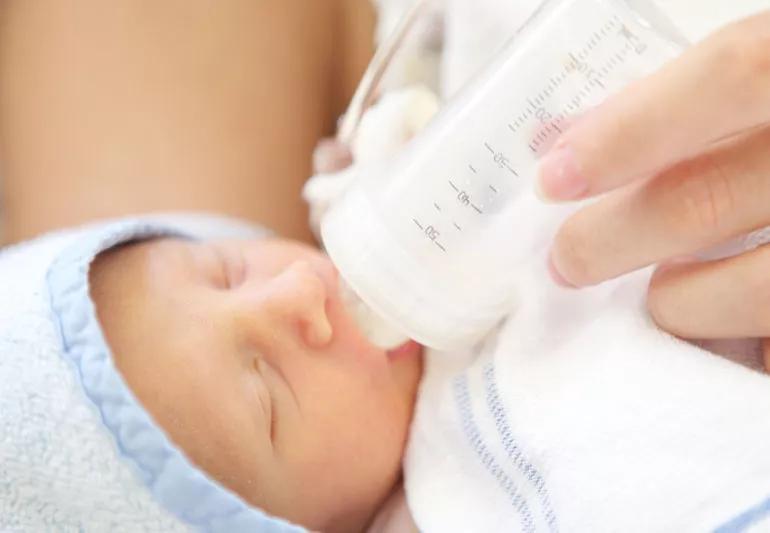Answers to common questions parents of preemies have

Becoming a parent can be overwhelming — and even more so if your infant spent time in the neonatal intensive care unit, or NICU. Whether your premature baby spent a few days or a few months in the NICU, they may have more complex needs than babies born at term.
Advertisement
Cleveland Clinic is a non-profit academic medical center. Advertising on our site helps support our mission. We do not endorse non-Cleveland Clinic products or services. Policy
“In the NICU, we offer a lot of education and support for parents. But once they go home, they feel they are on their own,” says neonatologist Anirudha Das, MD. “Babies who started life in the NICU are often fragile, and the parents are anxious. So it’s helpful to know what to expect.”
Preemies are more prone to sudden infant death syndrome (SIDS) than term babies. Dr. Das encourages all parents to follow the sleep safety guidelines from the American Academy of Pediatrics, including:
Dr. Das also recommends not using store-bought movement or oxygen monitors. They are unreliable and often give a false sense of security that everything is fine, he says.
Advertisement
“A premature baby’s immune system is not fully developed, so be extra cautious,” Dr. Das says. “Breast milk gives antibodies, which provide the baby with an extra measure of protection. Whenever possible, we encourage moms to nurse their babies or pump and feed breast milk in a bottle.”
Dr. Das also recommends:
“Parents can bathe their baby every day, as long as they keep the room temperature higher, so the baby doesn’t get cold in the bath or immediately after,” says Dr. Das. “And since babies tend to have dry skin, I recommend putting moisturizer on the skin within 5 to 10 minutes after their bath.”
Dr. Das says all preterm babies have reflux and may vomit two to three times a day, which is normal. He recommends parents receive CPR training, because there is a risk of choking with reflux.
Other important feeding-related advice includes:
“These days, few babies go home with an apnea monitor, and most don’t go home on oxygen,” says Dr. Das. “If your baby does need an apnea monitor or oxygen for a short time, you’ll be given instructions before you leave the NICU.”
Before the neonatologist discharges your baby, they’ll do a car seat challenge test. Your baby will stay in a car seat for two hours to make sure they can breathe in the seat. Car seats could result in the neck position blocking the airway, so this is an important test to make sure your baby is safe.
Advertisement
Any pediatrician is qualified to care for a premature infant. If possible, stay within the same health system as the neonatologist to ensure seamless transition of care.
If you have questions in the period shortly after discharge, you can reach out to the neonatologist, but your baby’s pediatrician will be their primary care provider. For babies with complex issues, the outpatient neonatology team will follow your baby’s developmental milestones along with the pediatrician for the first two years of life.
“The mental health of parents is vital,” says Dr. Das. “They experience a lot of anxiety when their baby is in the NICU, so postpartum depression is a very real thing.”
Happy, healthy parents are key to healthy babies, Dr. Das says. He urges parents to get screened and find support if they feel anxious or depressed.
Advertisement

Sign up for our Health Essentials emails for expert guidance on nutrition, fitness, sleep, skin care and more.
Learn more about our editorial process.
Advertisement

Most babies will crawl between 7 and 10 months old, but later can be normal, too

Adding extra formula, cereal or medications to your baby’s bottle is a dangerous and misguided practice

Teaching your baby to sign may help ease frustrations before they can talk, but it’s not a must-do

Babies can get congested easily, but you can calm their cough by keeping them hydrated, using nasal drops and running a humidifier

Try to burp your baby mid-feed and after they finish eating — but don’t sweat it if they don’t burp

Most babies will recognize their name by about 9 months old

Clean your baby’s mouth with a washcloth or small toothbrush if they have a tooth or you suspect thrush

‘Social smiles’ typically start around 8 weeks old, while laughter comes later — around 4 to 6 months

Even small moments of time outdoors can help reduce stress, boost mood and restore a sense of calm

A correct prescription helps your eyes see clearly — but as natural changes occur, you may need stronger or different eyeglasses

Both are medical emergencies, but they are very distinct events with different causes